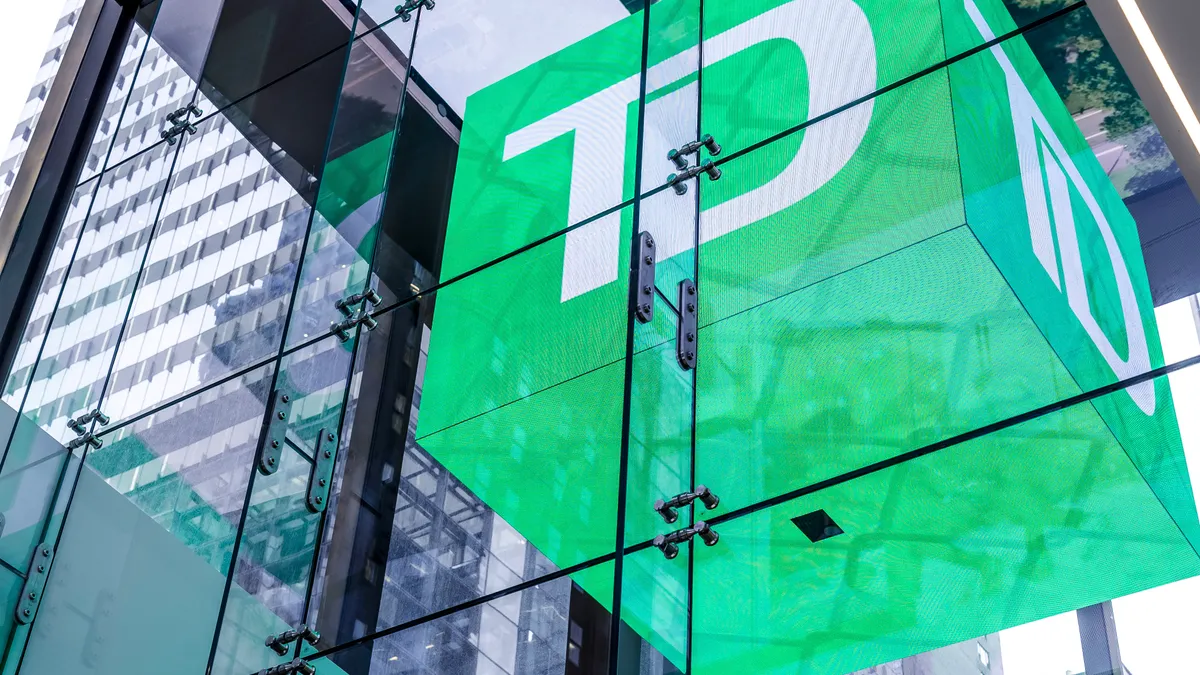It was bound to happen, right? Fall is conference season, and observers must have known there was a chance that representatives from TD and First Horizon — once partners in a failed $13.4 billion merger attempt — would attend the same event.
Granted, the annual Barclays financial services conference is massive. And TD and First Horizon execs were not speaking on the same day. But interestingly, both banks commented on a financial bump in the road that each said was unrelated to the scrapped deal.
First Horizon’s case might be more clear-cut. The bank told investors Tuesday to expect roughly $100 million in charge-offs for the third quarter, adding that about $70 million of that stems from a company that is liquidating.
First Horizon led a $218.5 million syndicated loan to Mountain Oil Express in 2021, but in an appearance at the Barclays conference Tuesday, the bank’s CEO, Bryan Jordan, didn’t mention the oil distributor by name.
“This is a loan, and this loss will be pretty darn close to total,” Jordan said Tuesday, according to Bloomberg.
Mountain Oil Express in March filed for a Chapter 11 bankruptcy — which would have allowed it to reorganize — but the company filed for Chapter 7 last month.
Jordan said valuations on the company were “good” prior to its recent bout of woes. He called the charge-off event “idiosyncratic,” adding that First Horizon is "not seeing any signs of broad stress" in its loan portfolio, American Banker reported.
"That's sort of our expectation for the next several quarters — that there's going to be one- or two-off situations, but nothing systemic or broad-based," Jordan said, according to the publication. "We have a lot of questions about how we got to where we are.”
It’s hard to tell whether that last sentence should be taken in the macro sense. And if it is, it’s hard to imagine the TD uncoupling wouldn’t be a part of it.
To their credit, TD and First Horizon have appeared gracious toward one another. When the banks announced in May that the merger was terminated, Jordan called the outcome “unfortunate and unexpected.”
TD was more effusive. (You might have to be when you’re paying an ex-acquiree $200 million, plus a $25 million fee reimbursement, for its troubles.)
“I want to thank First Horizon for their partnership over the last several months and wish them enormous success for the future,” TD CEO Bharat Masrani said in May.
A month later, TD and First Horizon held separate conferences — and each laid out strategies gunning for the same turf.
Jordan told investors in June he aimed to “build a banking franchise in the South that is going to be unparalleled.”
“Our people are energized,” a second First Horizon executive said.
TD, meanwhile, detailed a plan to open 150 U.S. branches by 2027, double its hiring of wealth advisers, and target South Florida, Atlanta and North Carolina, in particular.
Since the First Horizon deal’s demise, much has been made of TD’s anti-money laundering practices. The Wall Street Journal, in the days after the termination, reported that regulatory scrutiny of the Canadian bank’s handling of suspicious customer transactions caused the tie-up with First Horizon to falter.
But TD’s U.S. CEO, Leo Salom, in an appearance Wednesday at the Barclays conference, contradicted that, saying the termination stemmed merely from uncertainty about the timing of regulatory approvals.
Still, TD disclosed last month that the Justice Department is investigating the bank’s compliance with AML measures.
Salom reinforced Wednesday that that disclosure, too, was unrelated to the termination of the First Horizon deal.
"We believe that's a manageable item,” he said of the probe, according to Reuters and Bloomberg, “and in the fullness of time we will be able to resolve [it].”














